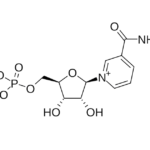
Peter Attia on the role of exercise in mitigating and reversing insulin resistance
This clip is from “Ask Me Anything” (AMA) episode #20, originally released on February 15, 2021. If you’re a member, you…

Qualys #168 – Sleep and insulin resistance with Matthew Walker, Ph.D.
This episode of The Qualys is from podcast #33 — Matthew Walker, Ph.D., on sleep Part III — which was originally released on April 15, 2019.

Qualys #166 – Theories on the origins and evolutionary reasons for insulin resistance
This episode of The Qualys is from podcast #69 — Ronesh Sinha, M.D.: Insights into the manifestation of metabolic disease — which was originally released on September 2, 2019.

Qualys #261 – Insulin: The amazing story of its discovery, its effect on cellular metabolism and IGF-1, and why it’s so expensive
This episode of The Qualys is from podcast #69 — Jake Kushner, M.D.: How to thrive with type 1 diabetes and how everyone can benefit from the valuable insights — which was originally released on February 18, 2019.

Qualys #165 – Attempting to define insulin resistance with Nir Barzilai, M.D.
This episode of The Qualys is from podcast #33 — Nir Barzilai, M.D.: How to tame aging — which was originally released on January 7, 2019.

Qualys #101 – What the hell does insulin resistance actually mean?
This episode of The Qualys is from podcast #33 — Rudy Leibel, M.D.: Finding the obesity gene and discovering leptin — which was originally released on December 17, 2018.
Sign up to receive Peter's expertise in your inbox
Sign up to receive the 5 tactics in my Longevity Toolkit, followed by non-lame, weekly emails on the latest strategies and tactics for increasing your lifespan, healthspan, and well-being (plus new podcast announcements).

Peter Attia on How Insulin Resistance Manifests in the Muscle
“If you’re in the business of wanting to live the healthiest life you can live, which means longer and better, you’ve got to be insulin sensitive, full stop.” — Peter Attia

#194 – How fructose drives metabolic disease | Rick Johnson, M.D.
“Fructose turns out to have been meant to be this wonderful system for survival, but in our culture with the amount of sugar in foods that we are eating (that either provide sugar or can be turned into fructose), this pathway has become hazardous.” —Rick Johnson

#173 – AMA #26: Continuous glucose monitors, zone 2 training, and a framework for interventions
“Zone two is a metabolic state. It’s not determined by speed. It’s determined by which energy system you’re requiring and what the equilibrium is.” —Peter Attia

Does NMN improve metabolic health in humans?
Thoughts on the first efficacy trial recently published

